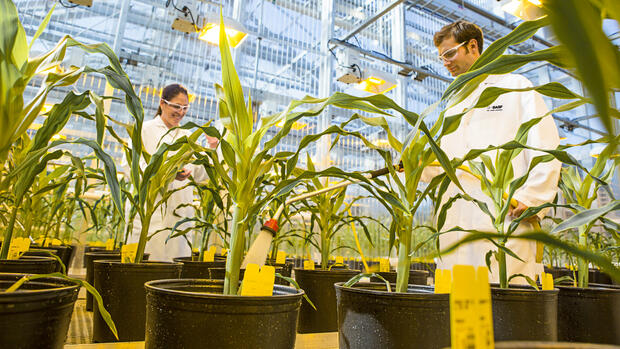Researchers, farmers and agricultural companies should now also be able to enter the biotech business on a large scale in Europe.
(Photo: BASF SE)
Brussels, Dusseldorf The EU is about to break a taboo. The Brussels Commission wants to make the use of genetic engineering in agriculture much easier. The corresponding draft law has been submitted to the Handelsblatt and is to be announced on Wednesday.
For decades, European countries, including Germany, have been very careful to keep genetically modified crops out of their fields. Now researchers, farmers and agricultural companies like Bayer should also be able to enter the biotech business in Europe, which has long been considered normal in the USA, China and Japan. The commission’s draft has met with bitter resistance from consumer advocates and organic farmers – and is likely to become the next point of contention in the federal government.
Specifically, the aim is to relax the regulations for so-called gene-edited plants. Gene editing differs from classic genetic engineering primarily in that the researchers do not introduce foreign genes into the plant. Instead, they use the gene scissors Crispr to carry out precise interventions in the plant’s DNA.
Read on now
Get access to this and every other article in the
Web and in our app free of charge for 4 weeks.
Further
Read on now
Get access to this and every other article in the
web and in our app.
Further
